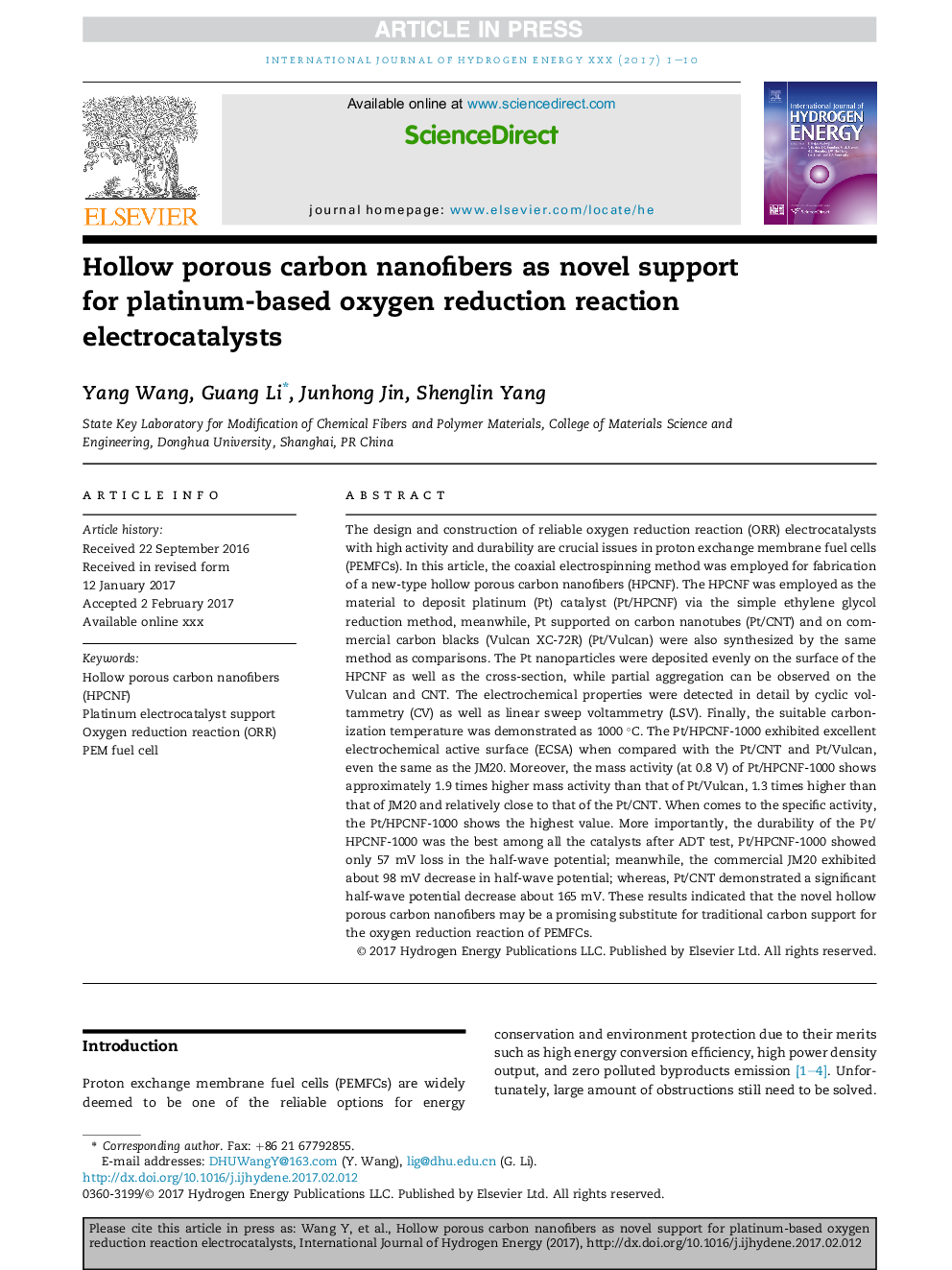| Article ID | Journal | Published Year | Pages | File Type |
|---|---|---|---|---|
| 5146800 | International Journal of Hydrogen Energy | 2017 | 10 Pages |
Abstract
The design and construction of reliable oxygen reduction reaction (ORR) electrocatalysts with high activity and durability are crucial issues in proton exchange membrane fuel cells (PEMFCs). In this article, the coaxial electrospinning method was employed for fabrication of a new-type hollow porous carbon nanofibers (HPCNF). The HPCNF was employed as the material to deposit platinum (Pt) catalyst (Pt/HPCNF) via the simple ethylene glycol reduction method, meanwhile, Pt supported on carbon nanotubes (Pt/CNT) and on commercial carbon blacks (Vulcan XC-72R) (Pt/Vulcan) were also synthesized by the same method as comparisons. The Pt nanoparticles were deposited evenly on the surface of the HPCNF as well as the cross-section, while partial aggregation can be observed on the Vulcan and CNT. The electrochemical properties were detected in detail by cyclic voltammetry (CV) as well as linear sweep voltammetry (LSV). Finally, the suitable carbonization temperature was demonstrated as 1000 °C. The Pt/HPCNF-1000 exhibited excellent electrochemical active surface (ECSA) when compared with the Pt/CNT and Pt/Vulcan, even the same as the JM20. Moreover, the mass activity (at 0.8 V) of Pt/HPCNF-1000 shows approximately 1.9 times higher mass activity than that of Pt/Vulcan, 1.3 times higher than that of JM20 and relatively close to that of the Pt/CNT. When comes to the specific activity, the Pt/HPCNF-1000 shows the highest value. More importantly, the durability of the Pt/HPCNF-1000 was the best among all the catalysts after ADT test, Pt/HPCNF-1000 showed only 57 mV loss in the half-wave potential; meanwhile, the commercial JM20 exhibited about 98 mV decrease in half-wave potential; whereas, Pt/CNT demonstrated a significant half-wave potential decrease about 165 mV. These results indicated that the novel hollow porous carbon nanofibers may be a promising substitute for traditional carbon support for the oxygen reduction reaction of PEMFCs.
Related Topics
Physical Sciences and Engineering
Chemistry
Electrochemistry
Authors
Yang Wang, Guang Li, Junhong Jin, Shenglin Yang,
